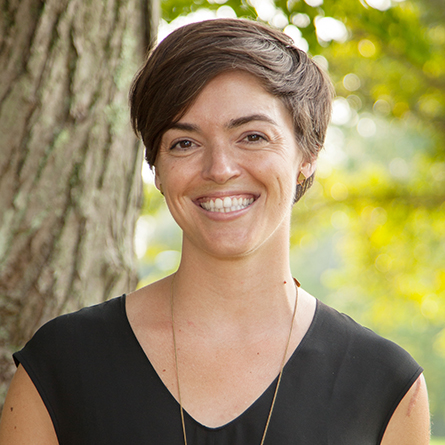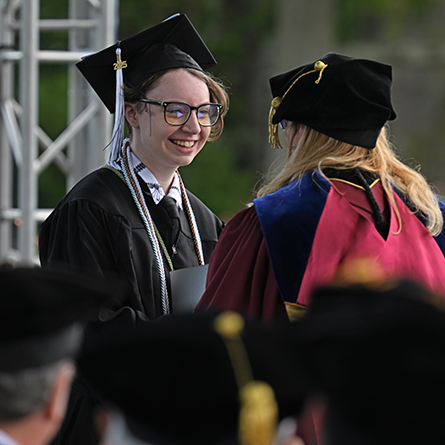
Professor Mara Suttmann-Lea awarded $40K to study voter education in the U.S.
Assistant Professor of Government Mara Suttmann-Lea recently won an award totaling more than $40,000 to study voter education in the United States with Thessalia Merivaki, an associate professor in American politics at Mississippi State University.
“Voter education is the process by which voters learn and are informed about the process of voting and how elections are run,” Suttmann-Lea explained. “We seek to understand what information is available from official and trusted sources of election information about how to register and vote, and the process of administering elections in the U.S.”
The MIT Election Data and Science Lab, funded from the Pew Charitable Trusts, awarded $40,329.63 to the College for a project that will measure and assess the information ecosystem cultivated by state and local election officials (EOs) during the 2022 midterm election cycle to address misinformation and build trust in elections. Suttmann-Lea and Merivaki aim to work with EOs to develop voter education strategies.
In partnership with the Algorithmic Transparency Institute, the professors are collecting data on state and local EOs’ online communications from their official Facebook, Twitter and Instagram accounts. With a team of research assistants, Suttmann-Lea and Merivaki are in the process of coding more than 50,000 unique posts shared by officials on these platforms between Sept. 10 and Nov. 30 of 2022.
These data will be merged with the Survey of the Performance of American Elections to assess the relationship between EO communications and voter confidence in ballot counting during the 2022 election cycle. The database will be made available for EOs and scholars to develop voter education policy, program evaluation and academic research.
“With this research, we hope to paint a picture of what voter education and outreach from official sources of election information like state and local election officials looks like in the United States, identify where and why there are gaps in these efforts, and assess their impact on a range of voter outcomes, including their ability to successfully register and cast a ballot, as well as their confidence in the administration of American elections,” Suttmann-Lea said.
One issue often overlooked is whether the public has access to the information needed to cast a ballot that counts and to understand the process of election administration in the U.S.
“One of the underlying goals of our research is to communicate the necessity of voter education for a healthy democracy,” Suttmann-Lea said. “We hope our work can show the value of informing voters about what is needed to vote and how elections are run, as well as the need for such information to come from trusted sources of election information like state and local election officials.”

